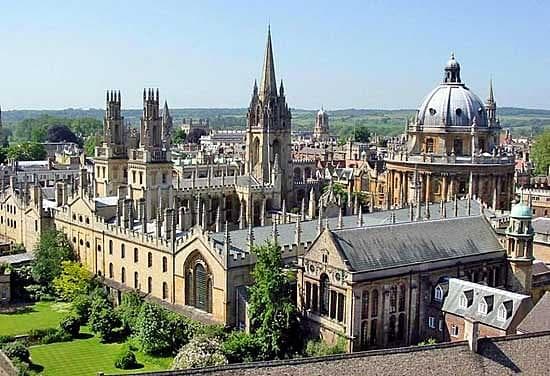The Faculty of History, English Faculty, Faculty of Medieval and Modern Languages, Faculty of Music, Faculty of Theology and Religion and the Faculty of Asian and Middle Eastern Studies all support the course, and it is administered by the Humanities Division.
This degree equips you to draw on a variety of disciplinary approaches to the study of the Middle Ages. It places emphasis on language training as well as on the development of skills in palaeography and codicology. It also offers the opportunity to undertake the acquisition of a medieval language not previously studied. You will follow a core course in research methods and choose from a range of taught option papers. You can also expect to spend at least a third of your time doing independent research with supervisors from at least two disciplines. You will also participate in a variety of workshops and exchanges.
Teaching comprises:
- compulsory language classes, chosen from a variety of possibilities which normally include (medieval) Latin, Old English, Old Norse, Old French, Old Occitan, Old High German, Middle High German, and Greek. Depending on availability, it may also be possible to arrange tuition in Medieval Welsh, Medieval Irish, Hebrew or Arabic. The language selected should normally be closely related to your work;
- palaeography/codicology classes in one of the participating departments, ie English, history (Medieval Latin), medieval and modern languages;
- option papers, which are courses on short periods or specific themes. The option courses available change from year to year, but the following list is indicative of the types of topics which may be offered by faculties: Saints and Sanctity in Late Antiquity and the Early Middle Ages; The Global Middle Ages; The Twelfth Century Renaissance; Women’s Writing in Medieval Germany; Problems in Dante Interpretation; Myth, History, and the Construction of Identity in Medieval Iberia; Old Norse Literature; Old English Poetry; After the Conquest: Reinventing fiction and history; The Medieval Body and Adornment.
You will be required to take one option in Michaelmas term and one option in Hilary term;
- seminars, including interdisciplinary seminars which underline the different but complementary approaches to medieval sources offered by different disciplines. In Trinity term, you will present work in progress on your dissertation at the interdisciplinary Medieval Church and Culture seminar;
- a research methods workshop designed to address issues encountered by researchers in medieval studies and intended to be responsive to and shaped by your concerns; and
- a dissertation of no more than 12,000 words on your own research topic.
Please note that not every optional subject or language listed may be on offer every year, depending in part on levels of student demand.
In connection with the interdisciplinary seminar, a special week of additional research activities takes place each year. A particular expert in interdisciplinary medieval studies is invited to give a plenary lecture and seminar and to conduct a workshop for graduate students. This is an exciting opportunity for current students to discuss their work with a distinguished visiting scholar. Recent guest lecturers have included Caroline Walker-Bynum, Barbara Newman, Christopher Page, Jeffrey Hamburger, David D'Avray, Rita Copeland, William Miller, Miri Rubin and William Chester Jordan.
If you wish to apply for the DPhil you will be encouraged to develop your master’s dissertation and doctoral proposals in tandem during the first few months, so that you will be well placed to make a doctoral application.
